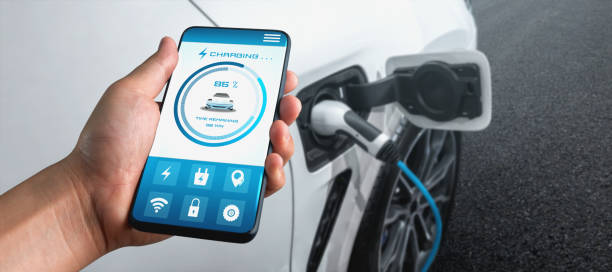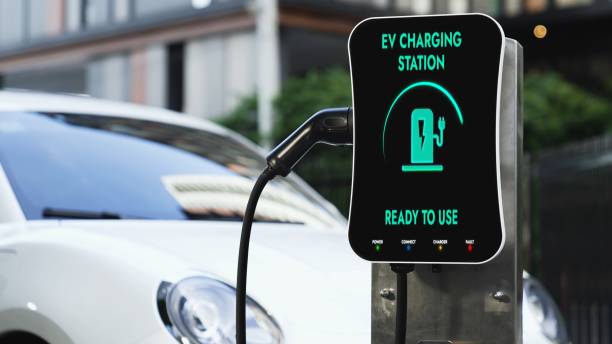As electric vehicles (EVs) become more popular and accessible, one of the most important questions on the minds of potential buyers is: how long does it take to charge an electric car? Understanding the time it takes to charge your EV is crucial for making informed decisions about home and public charging options, and planning your daily driving routine. In this comprehensive guide, we’ll explore the factors that affect electric vehicle charging, review charging options available for EV owners, and look at the specific charging times for popular models like the Toyota Prius, Prius Prime, and more.
Factors Affecting Electric Car Charging Time
Before we dive into the specifics of charging options and times, let’s first discuss the key factors that influence how long it takes to charge your electric car.
1. Battery Size
The size of your electric car battery plays a significant role in how long it takes to charge. Larger batteries, typically found in vehicles with longer ranges, take more time to charge compared to smaller ones. For instance, a vehicle with a 100 kWh battery may take longer to charge than one with a 50 kWh battery.
2. Charging Speed
Not all charging stations are created equal. There are different levels of charging, and the speed varies significantly. These levels include Level 1 charging, Level 2 charging, and fast charging options. The charging speed for electric cars can vary based on whether you’re using a home charging station or a public charging station.
3. Charging Source
The power source you use to charge your electric car affects the charging time. Level 1 charging uses a standard 110V/120V domestic outlet charging, which is slower compared to Level 2 charging, which uses a 240V charging station. Fast charging stations can charge your vehicle at significantly faster rates, reducing overall charging time.
4. Environmental Factors
Weather conditions, especially extreme heat or cold, can impact charging time. Batteries tend to charge slower in colder temperatures, which is important to consider if you live in colder climates.
5. State of Charge (SOC)
How much charge your electric car battery already has influences how long it will take to charge. Charging from 20% to 80% is typically faster than going from 0% to 100%. For example, charging a Toyota Prius from 50% to 80% will be faster than starting from an empty battery.
Electric Car Charging Options
When it comes to charging your electric vehicle, there are several options available, each with its pros and cons. These options depend on whether you plan to charge at home or rely on public charging stations.
Level 1 Charging (110V/120V)
Level 1 charging refers to using a standard domestic outlet (110V/120V) to charge your car. This is the most basic and convenient charging option, as most homes already have a standard outlet. However, the charging time is slower, so this option is best for overnight charging or for people who don’t mind waiting a bit longer for their car to charge.
- Charging time for electric cars: This is the slowest method, taking about 24 hours for a full charge on a typical EV with a 40-60 kWh battery.
- Best for: Overnight charging when you don’t need to drive long distances immediately.
Level 2 Charging (240V)
Level 2 charging uses a 240V charging station, which can be installed at home or found at public charging stations. This option offers much faster charging than Level 1 charging. A 240V charging station is typically found in garages, parking lots, or dedicated charging stations in Valdosta and nearby areas like Albany.
- Charging time for electric cars: A full charge can take 4-8 hours, depending on the vehicle and the battery size. For example, charging a Toyota Prius Prime or a typical electric vehicle can take 6-8 hours for a full charge.
- Best for: Daily commuters, home charging solutions, or people who have more time to charge overnight.
Fast Charging (Level 3/DC Fast Charging)
Level 3 or DC Fast Charging is the fastest charging option available. These stations are often located along highways and in major cities. Fast chargers can deliver up to 150 kW of power, significantly reducing charging time.
- Charging time for electric cars: With a 150 kW quick charging station, you can add about 80% charge to an EV in 30 minutes or less.
- Best for: Long trips, when you need a quick top-up during your journey.
Wireless Charging
While still an emerging technology, wireless charging is making its way into the electric vehicle space. This option allows drivers to charge their vehicles without plugging in, but it’s not as fast as other methods yet.
- Charging time for electric cars: Varies significantly, and currently, it’s slower than Level 2 charging.
Typical Domestic Charging Electric Car Charging Time

For most EV owners, charging at home is the most convenient and cost-effective option. Here’s an overview of what you can expect for charging times at home, using Level 1 charging and Level 2 charging.
Level 1 Charging Time at Home
Level 1 charging (using a 110V/120V domestic outlet) is the slowest method of charging. While it may take an entire day or more for a full charge, it’s perfectly fine for people who only drive short distances daily.
- Example: For a vehicle like the Toyota Prius, charging times for hybrids will be significantly shorter than for fully electric vehicles. The Prius Prime charging time on Level 1 can be anywhere from 10-12 hours for a full charge.
Level 2 Charging Time at Home
With Level 2 charging, you can cut down your charging time considerably. A 240V charging station is faster, and many EV owners opt for this installation in their homes.
- Example: For a Toyota hybrid vehicle, charging times will vary. A full charge for a Prius Prime on Level 2 can typically take between 4-6 hours, depending on the battery level when you start charging.
Home Charging Solutions
Many EV owners install a home charging station with a Level 2 charger for more convenient, faster charging. These chargers can be easily installed in garages or driveways and are ideal for daily charging needs.
Typical Public Charging Electric Car Charging Time
Public charging stations provide a quick and convenient way to recharge your electric vehicle when you’re on the go. These stations are usually located in public places such as shopping centers, rest stops, and parking garages.
Charging Time at Fast Charging Stations
Fast charging stations are the go-to option for drivers who need a quick charge during their travels. These stations can charge your car in a fraction of the time compared to home charging.
- Public charging time: A 150 kW fast charger can charge an EV to 80% in around 30 minutes, depending on the car model.
- Example: Charging a Toyota Prius Prime at a fast charging station might take 30-60 minutes for an 80% charge.
Charging Stations in Valdosta and Albany
When looking for charging options, you can find public charging stations in Valdosta and nearby areas like Albany, where a variety of charging stations can help you top off your battery quickly while out and about.
Real-World Charging Time for Popular Electric Vehicles
To give you a better sense of what to expect in terms of charging times for electric cars, let’s look at real-world examples of popular electric vehicles.
Toyota Prius Charging Times
The Toyota Prius has both hybrid and plug-in hybrid versions. Prius Prime charging time will depend on the battery size and whether you’re using a Level 1 or Level 2 charging station.
- Level 1 Charging: 10-12 hours for a full charge.
- Level 2 Charging: 4-6 hours for a full charge.
Tesla Model 3 Charging Times
For a vehicle like the Tesla Model 3, you can expect faster charging times, particularly when using Level 2 charging or fast charging stations.
- Level 1 Charging: 24 hours for a full charge.
- Level 2 Charging: 8-10 hours for a full charge.
- Fast Charging (Supercharger): About 30 minutes to charge 80%.
Nissan Leaf Charging Times
The Nissan Leaf, one of the most popular EVs in the market, has different charging times depending on the charger.
- Level 1 Charging: Up to 20 hours for a full charge.
- Level 2 Charging: 6-8 hours for a full charge.
- Fast Charging: 30 minutes to charge to 80%.
Charging Electric Car Overnight
Many EV owners prefer to charge their electric vehicle overnight when electricity costs are lower, and they don’t need to drive immediately. Here’s what you can expect if you choose this method:
- Level 1 charging will typically take overnight (12-24 hours), which is perfect if you don’t need to drive long distances the next day.
- Level 2 charging will reduce the charging time to about 4-8 hours for a full charge.
Conclusion
In conclusion, understanding electric car charging time is essential for managing your daily driving routine, whether you’re charging at home or relying on public charging stations. From Level 1 to Level 2 charging and fast charging, each option offers different charging speeds suited for various needs. Whether you own a Toyota Prius, Prius Prime, or another electric vehicle, knowing your charging times will help you stay on track and enjoy the benefits of electric driving.
So, next time you’re wondering how long to charge an electric car, keep in mind that it all depends on your charger, battery size, and how fast you need to recharge. With convenient home charging electric vehicle solutions and a growing network of public charging stations, charging your car has never been more accessible and easier.
Also Read More Article : Understanding Gear Overloading and How to Prevent It
